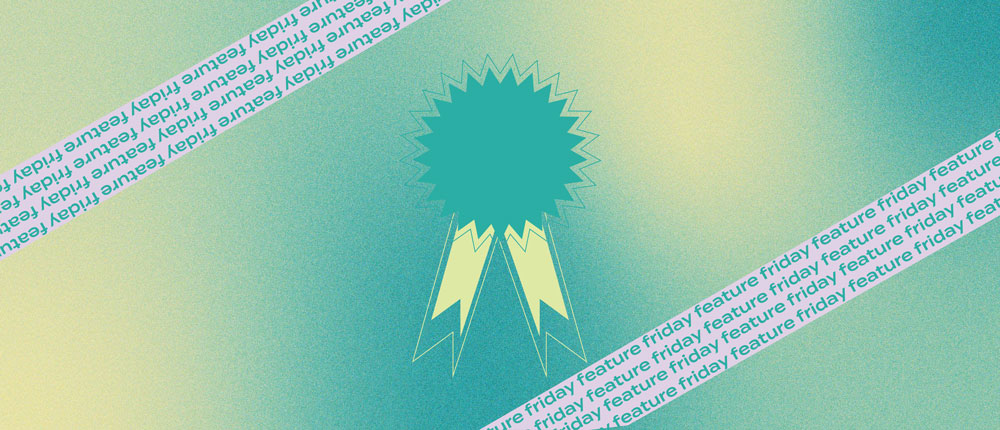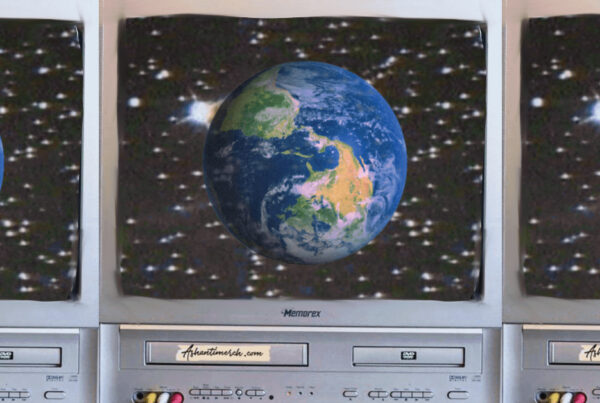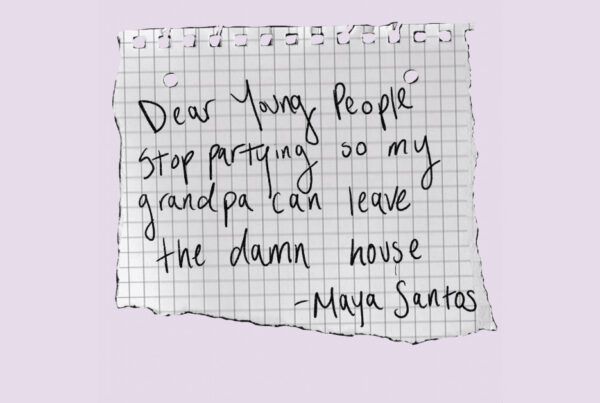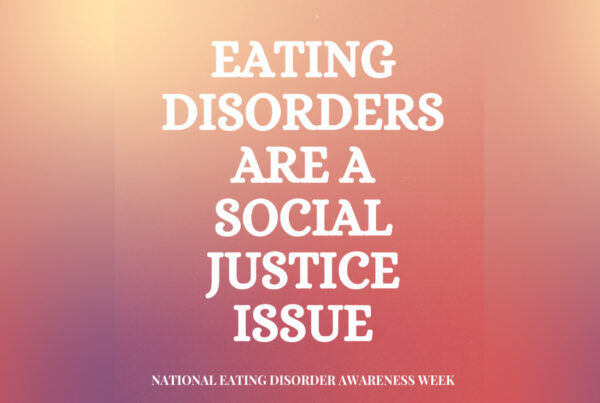First Time Voters
This time last year I fantasized about strutting around with an “I Voted” sticker, probably in some fashion sweats shooting finger guns at fellow cool patriots leaving the polls. I’d be walking with purpose to the closest brewery or chain coffee shop where I’ll purchase a gross pistachio croissant that looks better than it tastes. I’d spend the next hour taking photos of that said croissant next to my carefully placed “I Voted” sticker now stuck to the side of my disposable coffee cup, as I prepare to wreak havoc on my Instagram story because that’s what it means to be American, right?
I’m mostly joking. Mimicking the celebrity “I Voted” selfies aside, I think it’s important to be vocal about voting, and social media can encourage others to do the same. I’m just a bitter green-card holder waiting for my time to shine. I’m a Canadian citizen and although I’ve lived in America for most of my memorable life and have long-forgotten the lyrics to “Oh, Canada,” I’m still in the immigration process. My naturalization process has been delayed due to the pandemic so my patriotic fashion sweatpant dreams are going to have to wait. With naturalization wait times at an all-time high, I’m not alone in my extended immigration process. However, there are still hundreds of thousands of folks filling out the ballot, so why not live vicariously through someone else’s experience? Voting in this election has been at an all-time high. I spoke with three first-time voters on their experiences and motivations behind finally sending in the ballot.
Coming of Age
The 18-year olds I know are some of the most politically driven activists in my life. Young people are cooler and smarter than us. There, I said it. And you don’t have to watch a Greta Thunberg interview to know that young people are going to change the world as we know it.
According to a Pew Research Center study from January, 2019, combined with millennials, this younger slice of the U.S. population is expected to make up 37 percent of eligible voters, nearly as many as eligible baby boomers and silent generation voters combined (38 percent). I spoke with Cynamin Newell, a Californian college student studying in Arizona, about their experiences voting for the first time.
Cynamin Newell (Age 18)
Emily: Tell me a little about yourself (where you are from, what you study, favorite Halloween monster, last SNL sketch you saw, etc.)
Cynamin: I am originally from Fresno, CA, but I have moved to Flagstaff, AZ for my university studies. I am majoring in Special and Elementary Education in hopes of becoming a K-3 teacher. I am part of the LGBTQ+ community (queer and nonbinary). My favorite musical is Hamilton.
Emily: Why are you voting for the first time?
Cynamin: I am voting for the first time because I want to see a change in the United States and if I want things to change I must get involved to actually see change in the midst of our government system.
Emily: What issue matters most to you in this election (ex: human rights, economic recovery, immigration, COVID recovery, etc.)?
Cynamin: The thing that matters the most to me this election is human rights for minorities and the LGBTQ+ community.
Emily: What did you do with your “I Voted sticker” (wore it, posted to Instagram, placed it in the middle of your forehead, ripped it into a thousand pieces and watched it burn, etc)?
Cynamin: I put it on my water bottle.
Emily: Will you vote again?
Cynamin: I will most definitely vote again.
Gaining Citizenship
Ah, my white whale–becoming an American citizen. According to USCIS, about 780,000 people become citizens annually. This is a big year to gain citizenship. I spoke with Robiati Endashaw about her naturalization process and her first time casting an American ballot.
Robiati Endashaw (Age 23)
Emily: Tell me a little about yourself (where you are from, what you do for work/what you study, superlatives, opinions on Glee, etc.)
Robiati: I am originally from Ethiopia, but I moved to the U.S in 2007 when I was ten. I recently graduated from the Kelley School of Business at Indiana University and will be working at Accenture as a consultant in January. My favorite thing to do is read and eat ice cream.
Emily: Why are you voting for the first time?
Robiati: I am voting for the first time because I became a citizen in 2019, so this is the first presidential election I have been able to participate in.
Emily: What issue matters most to you in this election (ex: human rights, economic recovery, immigration, COVID recovery, etc.)?
Robiati: I can’t say that I have ONE primary concern since certain issues aren’t silos; everything is intertwined. However, the issues that are at the forefront of my mind in this election are America’s unsettled issues with systemic racism, our stance on foreign policy, and our response to COVID. The U.S could do better when it comes to how we handle racism. Instead of responding with empty platitudes when faced with instances of overt racism and discrimination, policy makers should care and think that the problems are important enough to respond with meaningful and impactful laws. I think if COVID is not handled properly, its effect on our economy in the next couple of years could be catastrophic. In addition, the U.S is a powerful country globally; we have a lot of influence and power to do good, but history and current times show that we don’t always use these tools to facilitate peace and freedom throughout the rest of the world. Our foreign policy footprints are extensive, and I think we should give it the attention it requires.
Emily: You’ve recently become a citizen, can you speak to that process? (My least favorite topic too, trust me).
Robiati: I had a unique situation. My mother was the first in our family to get naturalized. I was still a minor when she became a citizen. According to the rules, if a parent becomes naturalized, any minors also become citizens (you have to prove your relation and fill out other documentation of course). My younger siblings became citizens that way, but for some reason, my citizenship was never recognized. It wasn’t until two weeks before I left for my study abroad program in Singapore that I found out I could potentially already be a citizen. The day after I found out, I made an appointment at the passport agency in Dallas. During my appointment, I figured out that I could get my citizenship recognized as long as I could find paperwork that proved my relation to my mother. This proved to be more difficult than expected because I have a different last name than both my parents (our last names are our respective grandfathers’ names) and my birth certificate was issued three or four years after I was born (a common thing in Ethiopia). This meant that my birth certificate couldn’t prove my relation to my mother for the first couple years of my life. Thankfully, my parents had old immunization records soon after my birth that had their names on it, proving that I was, in fact, my mother’s daughter. After submitting all the necessary documents (Which for some reason included my school grade reports dating back to elementary and middle school), I got the notice that I was approved. I paid extra to get my passport expedited, and I received it three days before I left for Singapore! It changed the trajectory of my study abroad experience because traveling with an Ethiopian passport to many countries is more expensive and time consuming than traveling with an American passport. I was grateful that everything worked out.
Emily: What did you do with your “I Voted sticker” (wore it, posted to Instagram, placed it in the middle of your forehead, ripped it into a thousand pieces and watched it burn, etc)?
Robiati: I lost it!
Emily: Will you vote again?
Robiati: Absolutely.
Choosing to Make a Difference
There are many reasons why an American citizen would not vote, from feeling as though none of the candidates properly represents them, to not having access to government identification, to inaccessible voting polls, to not feeling educated enough in politics.
So whether you have been a victim of voter suppression or have simply just never gotten around to it- you are not alone. Only half of the American population votes each year. I spoke with Outspoken’s very own Donnesha Robinson on why she hasn’t voted and what pushed her to do so in this election.
Donnesha Robinson (Age 22)
Emily: Tell me a little about yourself (where you are from, what you do for work/what you study, favorite season, last Shia LaBeouf film you saw, etc.)
Donnesha: I’m from Indiana and just recently graduated from Indiana University this past spring. I’m currently working in sales in Arkansas.
Emily: Why are you voting for the first time? If you didn’t vote by choice, why?
Donnesha: When I was a freshman in college (4 years ago) I voted in the primary election but when it came to the presidential election I felt uninformed. Like I was choosing between two evils for candidates, so I decided it made more sense to not vote at all than to make an uneducated vote. Now, I feel completely different. Even though I don’t agree with either candidate 100% I’ve realized that 1) too many people have fought for my right to vote as a black woman for me to neglect such a right. 2) There is too much at stake, too many rights will be violated, too many people will be disenfranchised if I don’t vote. It’s too risky NOT to vote.
Emily: What issue matters most to you in this election (ex: human rights, economic recovery, immigration, COVID recovery, etc.)?
Donnesha: Human rights, international relations, political authority (who’s able to make the decisions/forms of accountability).
Emily: What did you do with your “I Voted sticker” (wore it, posted to Instagram, placed it in the middle of your forehead, ripped it into a thousand pieces and watched it burn, etc)?
Donnesha: Once I vote, I’ll post on insta to remind others to vote as well!
Emily: Will you vote again?
Donnesha: YES! YES! YES!
Call to Action
There you have it! No matter what your reason for not voting before, it’s never too late to become a first time voter. There’s always room to grow and learn and discover your own political leanings. So stick that “I Voted” sticker next to a croissant and join the Outspoken movement!

Emily Powers, Content Creator






